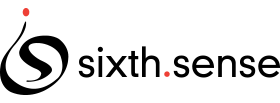
We used to work from home, now we live at work…
A phrase you may have heard and perhaps a sobering thought? Overstated? Maybe … but it’s clear that something feels very different.
Recent research from The Office Group (nice, flexible working spaces by the way), which surveyed over 2,000 workers found that 59% are working longer hours, 42% are unable to separate working and home life and 48% feel unable to take a proper break.
Not a recipe for continued healthy high performance!
The question for managers is what to do about this and it’s our view that it’s not just about more virtual coffee mornings, team quizzes and a greater tolerance of flexible working patterns – important as all of these may be.
We think three factors stand out above all others: basic management practices, providing meaning and psychological safety. Pay attention to these and many problems fall away.
Basic Management Practices
We know what the principal causes of workplace stress are, even under normal conditions. We have been studying these for years and they haven’t changed. Year after year, the Labour Force Survey has found that employees become stressed because of:
- Workload (deadlines, volume, pressure, responsibility)
- Role uncertainty (lack of clarity about their job/performance expectations)
- Lack of control (no say over how they do their job)
- Lack of support (usually from their boss)
- Workplace changes (reorganisation, new technology, new ways of working)
- Violence (bullying and intimidation)
Sorting most of these out is management 101; there’s little excuse…
Meaning
As Tomas Chamorro-Premizic has pointed out:
“Overworking is really only possible if you are not having fun at work. By the same token, any amount of work will be dull if you are not engaged, or if you find your work unfulfilling”.
Understanding why you are doing something is the cornerstone of productivity and fun in this context isn’t the same as frivolity. You could substitute the word fun for happiness and as the research shows, the happiness that leads to job satisfaction and higher levels of productivity is a mixture of pleasure and purpose. Pleasure with no purpose has little place in work but purpose with no pleasure is just duty and you can only rely on that for so long!
A central role of managers is to provide the line of sight between effort and outcome and to put work in context; in other words, to provide connection with the mission and to emphasise how tasks fit in to the overall picture. After all, a quick route to feeling stressed and alienated is to be isolated from others and confused by what we are being asked to do.
Psychological Safety
High levels of accountability are not enough. For people to really perform, they also need to feel safe: safe to speak up, suggest better ways of doing things, challenge orthodoxy and even mediocrity and to be able to make the occasional genuine mistake.
Again, research shows us that the foundations of psychological safety in teams of people rest on four pillars:
- A sense that there’s a willingness to help each other
- Respect for difference and diversity in their fullest meaning
- A healthy approach to dealing with risk
- A culture of feedback and open conversations
So here, it’s a manager’s role to attend to team dynamics and culture.
Want to know more? Get in touch and we can share ideas. After all, we are probably supporting some of your key competitors with all of this right now!

Start The Discussion